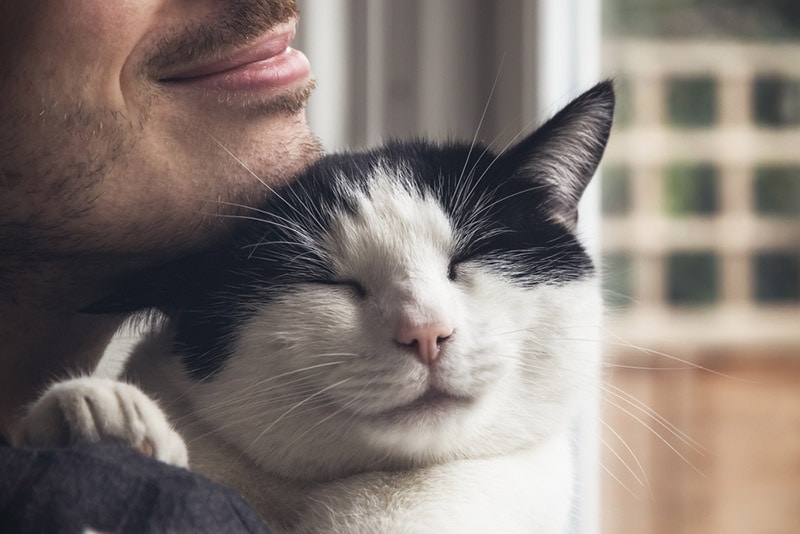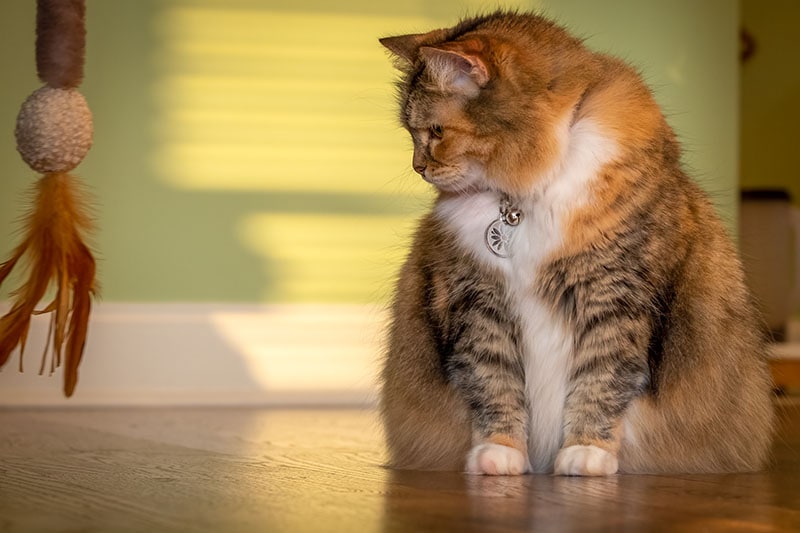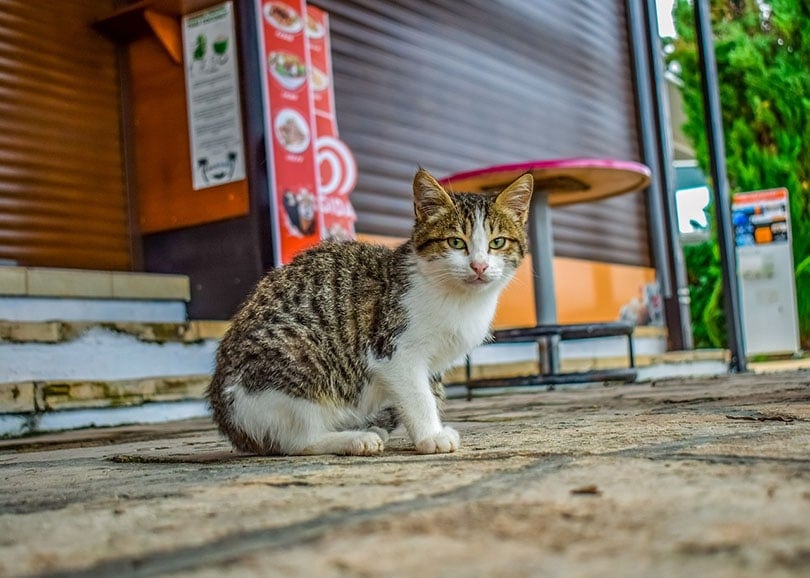Can Cats Eat Lilies? Vet-Approved Risks & Poison Prevention

Updated on
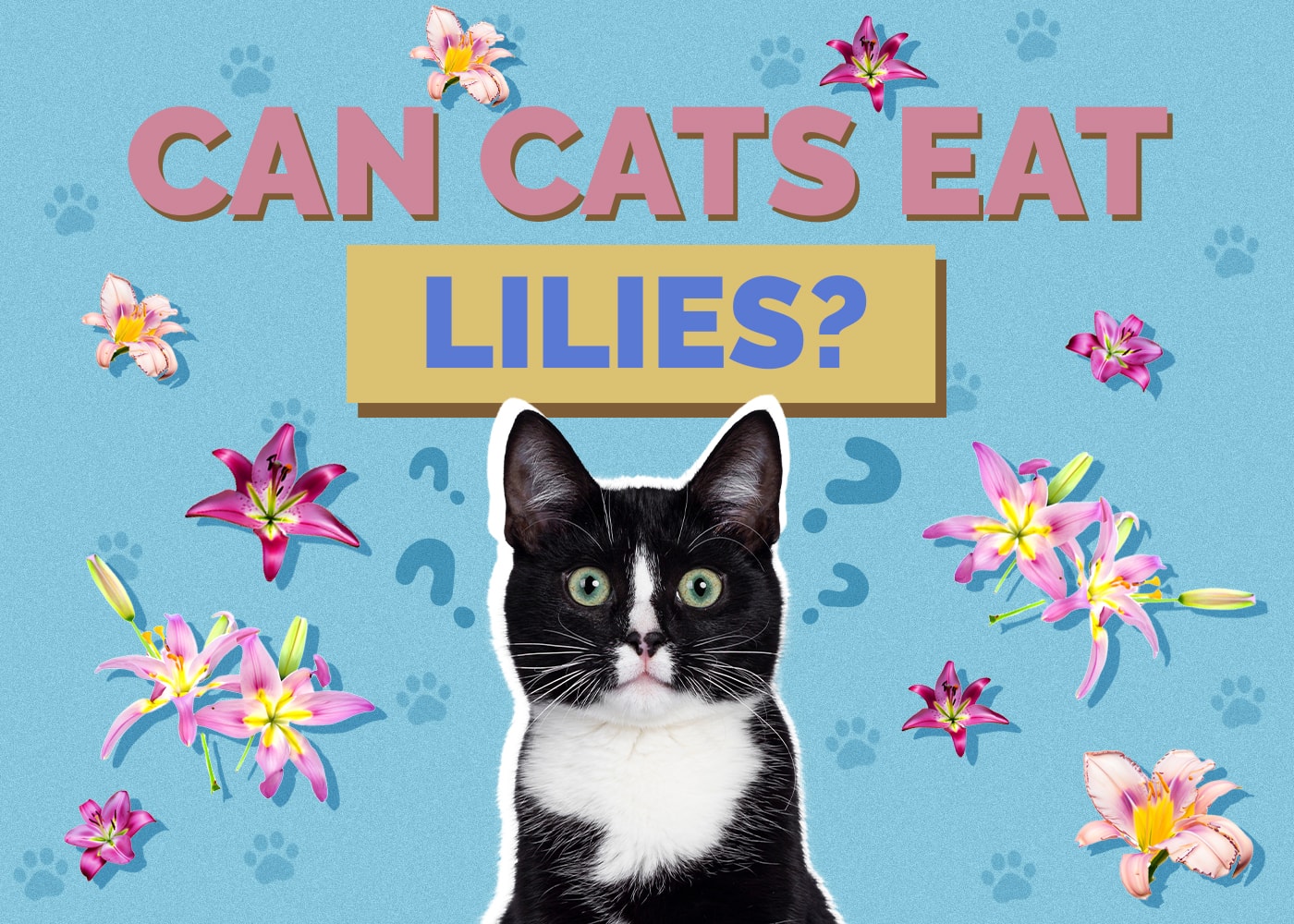
Cats are curious creatures. Some of them get into things they shouldn’t when they’re investigating their surroundings. But if you keep lilies in the house, you may want to rethink that decision.
Of course, lilies are beautiful flowers with a sweet fragrance that can brighten up any home. They’re often included in bouquets of other flowers, so you can miss them hiding in there if you’re not looking closely.
Unfortunately, lilies are extremely toxic to cats. Even just keeping them in the house can be deadly for them. All parts of the plant are toxic; even the water from a vase holding cut lilies can be fatal. The toxin in lilies isn’t exactly known, but it affects all cats. All species of Lilium (true lily) and Hemerocallis (day lily) are toxic. Your cat doesn’t have to have much contact with the flower for it to get poisoned. Lilies can cause kidney failure in your cat. Many people are unaware of how dangerous this flower can be. Read on for more information on how to keep your cat safe.
What Parts of Lilies are Toxic?
Every part of a lily is toxic to your cat. The leaves, petals, stems, pollen, and even the water in the vase can kill cats. Even if cats don’t ingest the plant itself, they could lick the pollen from their fur. Biting or licking the leaves (or even a single leaf!) and petals is enough to make cats extremely sick. It’s not an exaggeration to say just being around lilies could potentially be fatal for your cat.

Are All Lilies Toxic to Cats?
To be safe, yes. All lilies are toxic to cats. Some are more toxic than others, but your cat should stay away from any flower with “lily” in the name. A Calla Lily (Zantedeschia aethiopica), for example, may not be a true lily, but it contains insoluble calcium oxalates and can still irritate your cat’s mouth and eyes. In addition to Calla Lilies, the lilies you want to keep out of your house or garden if you have cats are:
- Easter Lilies
- Asiatic Lilies
- Day Lilies
- Japanese Snow Lilies
- Red Lilies
- Tiger Lilies
- Western Lilies
- Rubrum Lilies
- Glory Lilies
- Lily of the Valley
- Peace Lilies
- Kaffir Lilies
Is My Indoor Cat at Risk?
Indoor cats are less likely to come in contact with lilies since you can control their environment. The best way to keep your cat safe is not to bring lilies into your home. If you work or garden using lilies, wash your hands thoroughly and change your clothing at home before interacting with your cat.
Outdoor cats or cats that roam freely but return home are at risk for lily poisoning if they come in contact with the flowers in a garden or find them discarded in a trash can. Since you can’t control their contact with the flower, it’s best to know the signs of lily poisoning. If you notice your cat experiencing any of these symptoms, get them to the vet immediately:
- Vomiting
- Drooling
- Weakness
- Depression
- Diarrhea
- Pawing at the face
- Lack of appetite
- Increased vocalization
- Difficulty breathing
- Swollen abdomen
These symptoms generally appear between 1–6 hours after your cat has been exposed to lilies.
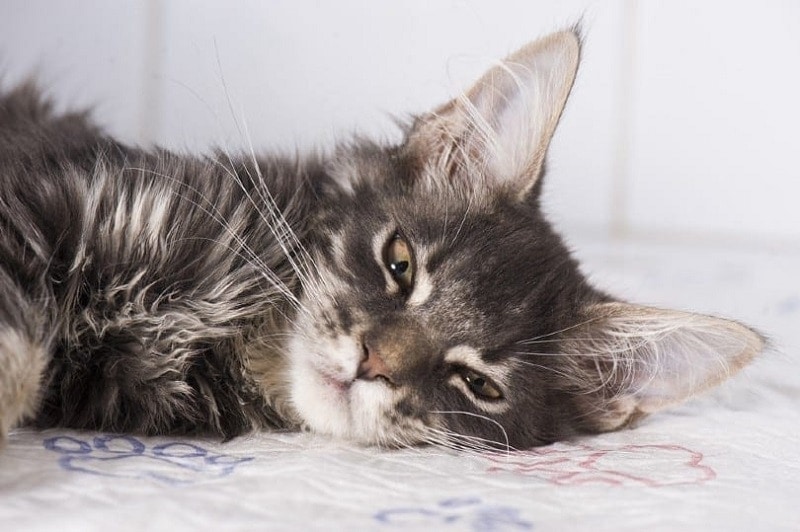
What to Do if You Suspect Poisoning
If you think your cat has had contact with lilies, there is no time to waste. Without treatment, cats can develop acute kidney failure and die within 2–3 days of exposure. If you’re wrong and your cat has not had any contact with lilies, it’s still better to be safe and contact your veterinarian or poison control hotline right away. They can offer you advice on your next steps. Cats have the best chance of surviving lily exposure if they are treated quickly.
Tips to Prevent Lily Poisoning in Cats
In addition to not having lilies in or around your home, you can do your best to inform other cat owners about the dangers they present. Always keep lilies away from your cat. If you are traveling with your cat, make sure your destination is also lily-free.
If You Love Freshly Cut Flowers
You may love to have beautiful, fragrant flowers in your home, but there’s no reason to be sad that these can’t be lilies. There are plenty of flowers that are perfectly safe for cats! Try some of these alternatives instead:
- Gerber Daisies
- Freesia
- Alstroemeria
- Snapdragons
- Sunflowers
- Roses
- Orchids
- Madagascar Jasmine
Final Thoughts
Lilies are deadly to cats. Even coming into contact with lilies or the water from a vase holding lilies can have devastating consequences for your kitty. It’s tempting to fill your home with lilies, especially around springtime holidays. Unfortunately, this can be fatal for your cat.
If you have friends who own cats, inform them of the dangers of lilies in the home if they don’t already know. Keep an eye on your own cat for signs of lily toxicity, especially if they venture around the neighborhood.
Try filling your home with other beautiful, fragrant flowers from our list. You won’t miss the lilies and you’ll make sure your cat stays safe.
Featured Image Credit: chuphotographer, Pixabay


